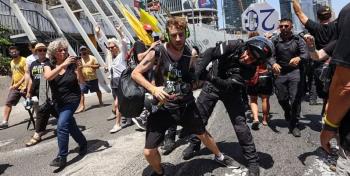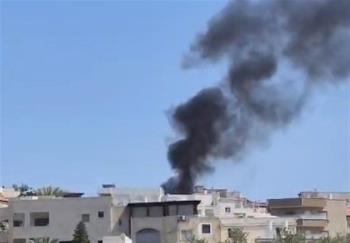Human Rights in Bahrain have not seen the light of day under the ruling al-Khalifa regime. In the shadow of an oil-rich Persian Gulf monarchy that has presented itself to the world as a modern and progressive state, the cases of hundreds of thousands of Bahraini citizens calling for reforms were hidden from public view for years.
On February 14, 2011 a series of demonstrations broke out demanding freedom, equality, and an end to human rights violations in the kingdom. Thousands of Bahraini protesters began rallying to this end but the Manama regime was quick to respond with a Saudi-backed crackdown.
Long List
Since then, the Bahraini regime's record of human rights violations has been mounting.
Reports estimate that more than 100 protesters have been killed at the hands of Saudi-backed security forces since the uprising erupted. Bahrain is also the top country in political prisoners per capita with 500 individuals having been held prisoners of conscience since 2011, according to the Bahrain Center for Human Rights, whereas more than 3,000 others are in arbitrary detention. Sheikh Ali Salman, the leader of the al-Wefaq political party, joined the list of prisoners of conscience after a Manama court sentenced him to four years in prison for peacefully voicing his views.
However, it does not end here. Within the walls of these prisons or detention centers, human rights continue to be violated. Bahraini prisons are infamous for torture and recent accounts have corroborated abuse. At least 64 % of detainees have been tortured and a few have even died as a result.
A Bahrain Independent Commission of Inquiry report stated that Bahraini police forces have inflicted physical and psychological abuses on prisoners. Torture methods include depriving detainees of toilets, sleep deprivation, and solitary confinement in prisons such as al-Qurain and the list goes on. Additionally, the dire situation extends from lack of medical treatment services and prevention of family visits.
Political Naturalization
Adding to the long track of abuses that includes arbitrary arrests, the use of force on peaceful protests with internationally banned weapons of deterrence such as tear gas and rubber pellets, house raids, revoking citizenships is being used as a punitive measure.
But while stripping Bahrainis of their rights, authorities are granting non-Bahrainis citizenship for sectarian purposes and even in defiance of the law. Manama is granting foreigners citizenship within a period that does not comply with that stated within the law. The country's project of naturalization balance is a violation of international law because it targets a group of individuals. Official statistics show that between 95,000 to 120,000 people were given citizenship as part of political naturalization.
This policy threatens the political, economic, and social rights of indigenous citizens by tipping the societal and demographic balance.
International Silence
Bahrain is home to the US fifth fleet. As a US ally and affluent Persian Gulf state, the Bahraini regime has managed to get away with murder.
The international community has done little to nothing to condemn Manama's brutal oppression of its people. The United Nations' silence before the ongoing repression sheds light on its dedication to defending human rights as it seems to be selective and prejudiced.
And where Washington leads, the rest of the west follows. Just recently, the US decided to remove limits imposed on military aid to the country claiming there has been progress on human rights reforms.
Despite al-Khalifa brutal and inhuman measures, the Bahraini opposition believes in a political solution to the crisis. This is not to say that the popular uprising that has been in the works for more than four years will concede its demands but rather that reconciliation should secure a democracy by the people and for the people of Bahrain.


























